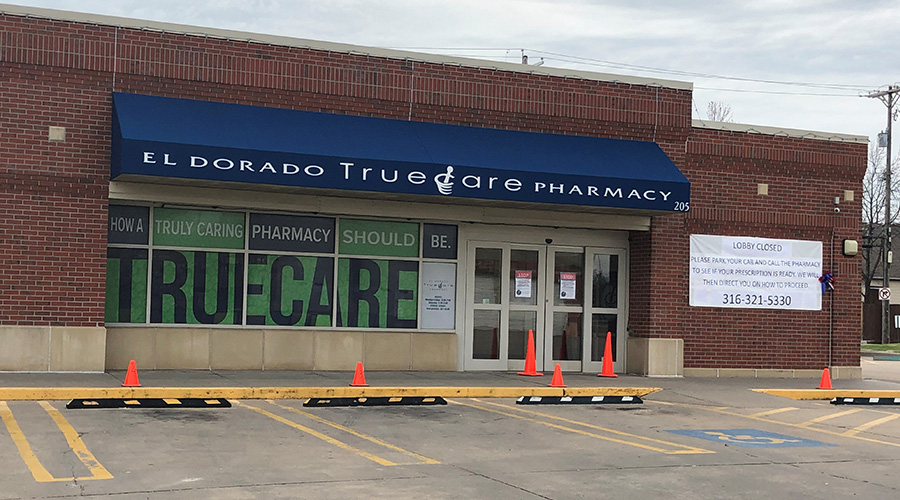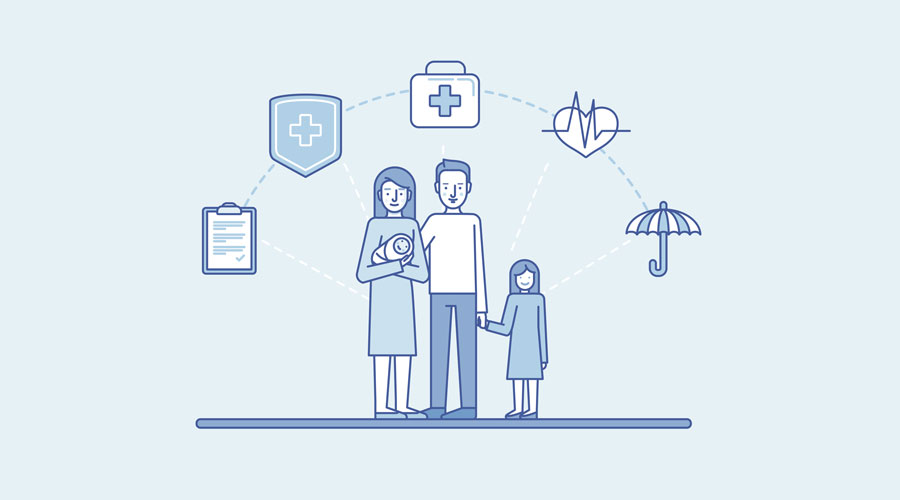Inside: Stay calm and communicate well to guide your business through an emergency.
Emergency situations separate great leaders from good leaders. As a business owner, you need to make sure you’re prepared to handle whatever crisis comes your way — whether its disease, natural disaster, or economic challenges. Use these best practices to guide your staff through any emergency situations you face.
Be decisive
In an emergency, the situation can change quickly. Because of that, you may be tempted to wait it out and see if things will improve on their own.
But faced with uncertainty, employees and community members will look for you to provide clarity as a leader. By not dilly-dallying on decision-making, you’ll give your staff members and patients something to rely on.
If you don’t decide on a course of action quickly, you also risk putting your pharmacy in more danger. Things could get much worse while you are waiting things out. Even if you don’t have complete information, it’s better to make a decision quickly and prepare for the worst. If you overreact, you can always make adjustments, but if you underreact, you risk catastrophic losses.
Communicate clearly
As soon as you’ve decided on a course of action, share it.
It won’t feel good to be the bearer of bad news, and because of that, it’s okay to acknowledge the situation isn’t ideal. You may have to let patients down or lay staff members off.
But delivering that bad news frankly and directly will be like ripping a bandaid off. It will give staff members and patient time to adjust to their new reality. When you withhold information — even if it’s because you’re hoping better news is on the way — you risk that information void being filled with gossip and breeding resentment.
A crisis is a time to over-communicate. Give updates frequently. It will show people that you are actively responding and will hopefully help them see the path forward to better days ahead.
Course correct
If the decisive course you chose at the beginning isn’t working, don’t just dig in your heels. The circumstances around you are going to be constantly changing, so you need to change your response with it. Don’t get tunnel vision — if you focus on staying the course with your initial plan, you will open yourself up to new vulnerabilities.
Make a point to step back frequently and take a holistic view of the situation. Identify what’s working in your response and what isn’t. It can be frustrating for everyone to have expectations or established processes change, but if you’re staying up-to-date with the most recent information, you’ll be able to back up your decisions with well-reasoned and transparent explanations.
Other articles like this
How One Community Pharmacy Is Beating COVID-19
A Guide to Risk Management for Independent Retail Pharmacy
How to Conquer Stress in Your Independent Pharmacy
Be compassionate
During a crisis, people are facing unexpected emotional and financial challenges, and your previously excellent staff members may be struggling.
You can’t expect everyone to be operating at the top of their game, and you should be prepared to make accommodations that you might not make in other circumstances. Parents may need more time off to care for their children, and others might need sick time.
Even if a staff member doesn’t have a specific problem, the emotional toll of crisis can be steep, and the stress may impact their job performance. Instead of scolding employees that are falling short, reach out and offer support.
Your empathy (or lack of empathy) will be remembered long after the crisis has passed, so don’t forget the human aspect of tragedy.
Don’t panic
You may not feel calm, but even if you’re anxious, don’t let other people see you panic. You set the tone for crisis response, so if you are visibly frazzled, it tells your employees and patients that you don’t have things under control.
This doesn’t mean you have to be unfailingly cheerful and encouraging everyone to look on the bright side. Instead, McKinsey recommends leaders exhibit “bounded optimism” in difficult situations.
If you’re overly confident, your staff will think you’ve lost touch with reality. Instead, remain grounded and acknowledge the challenges ahead while continuing to forge on. Your calm, realistic stance will help your team will trust you to navigate through difficult waters.
Cultivate a sense of purpose
Use times of uncertainty and anxiety to bring your team together. Draw everyone closer with a sense of common purpose.
Determine how your pharmacy can help during the emergency — by making sure all patients can access their medicines through expanded delivery, or by helping provide essential safety items for those who need it most — and encourage everyone to unite behind that cause.
If your staff members have a common goal to work towards, it will help keep them focused and give them a chance to think about something other than their own worries.
Focus on the things you can control
You can’t control the weather as natural disaster approaches. You can’t force strangers to stay home during a pandemic. You can’t control the government response to an emergency.
Because you can’t do anything to change those things, don’t fixate on them.
Think hard about the things you and your pharmacy staff can do to prepare and respond to a crisis, and do them as best you can. While you can’t know how well your patients are practicing personal hygiene, you can make sure that your staff members have all the supplies and tools they need to keep the pharmacy sanitized.
If the outside world is in chaos, take whatever steps you can to make the inside of your pharmacy run smoothly.
Look for opportunities
“Crisis” doesn’t have to mean “despair.” An emergency could also lead to opportunities if you know where to look — opportunities to prove your leadership skills, help your community, and stabilize your pharmacy’s business.
You shouldn’t use an emergency situation to do something like price gouge, for example, but if a crisis increases your sales, make the most of it. Provide reliable customer service during turbulent times in hopes that new patients will come back even after things have returned to normal.
Find ways to lend a hand to people struggling and increase your reputation in your community. Go above and beyond for your employees so they are loyal for years to come.
An Independently Owned Organization Serving Independent Pharmacies
PBA Health is dedicated to helping independent pharmacies reach their full potential on the buy side of their business. The company is a member-owned organization that serves independent pharmacies with group purchasing services, expert contract negotiations, proprietary purchasing tools, distribution services, and more.
PBA Health, an HDA member, operates its own VAWD-certified warehouse with more than 6,000 SKUs, including brands, generics, narcotics CII-CV, cold-storage products, and over-the-counter (OTC) products.
Want more pharmacy business tips and advice? Sign up for our e-newsletter.














